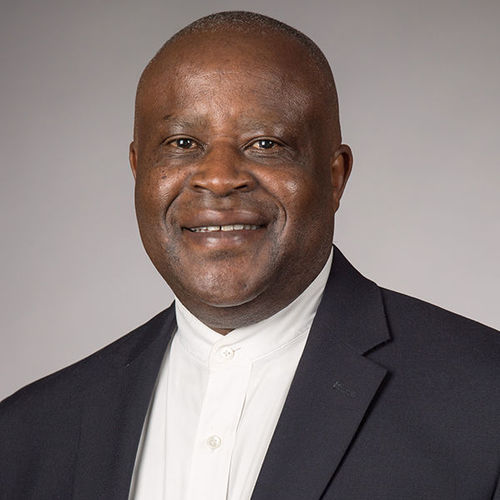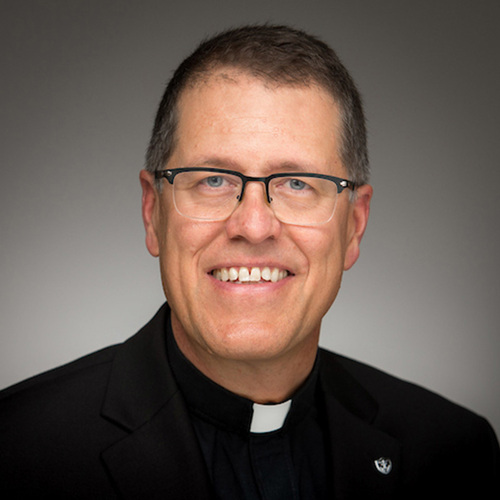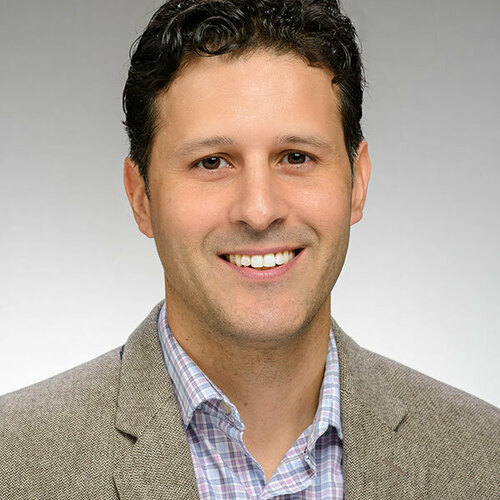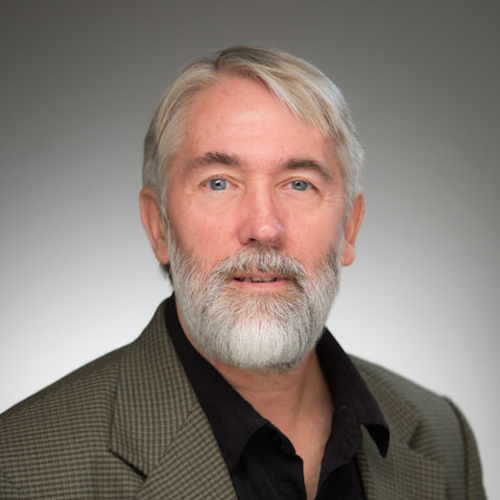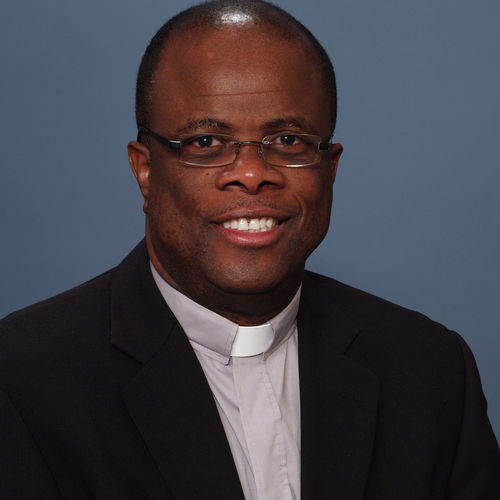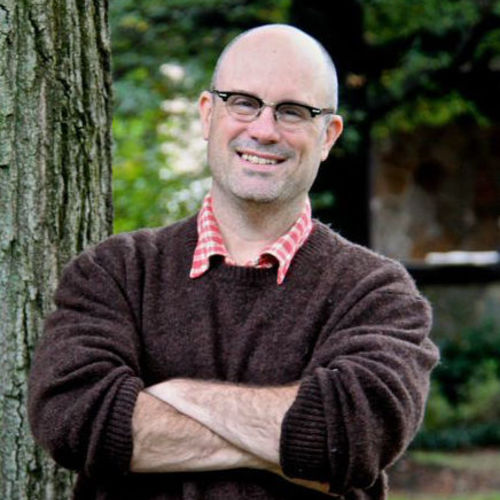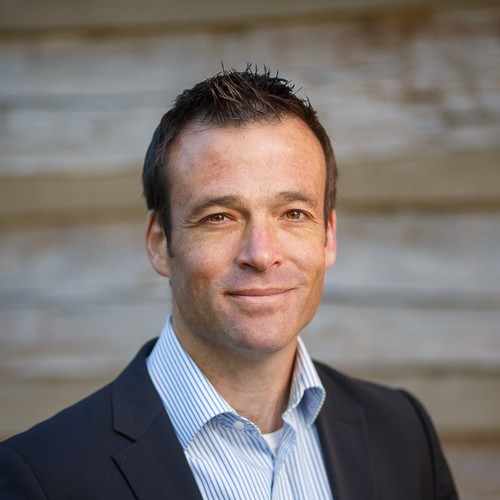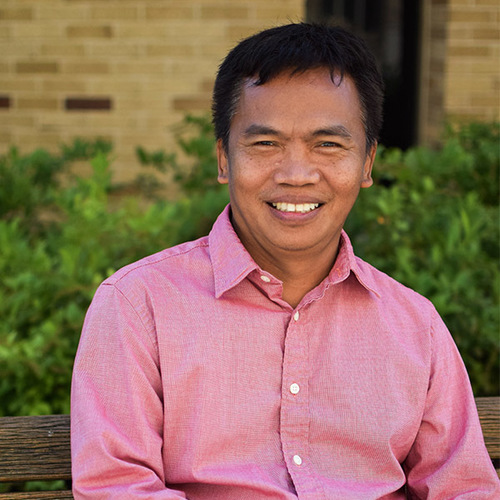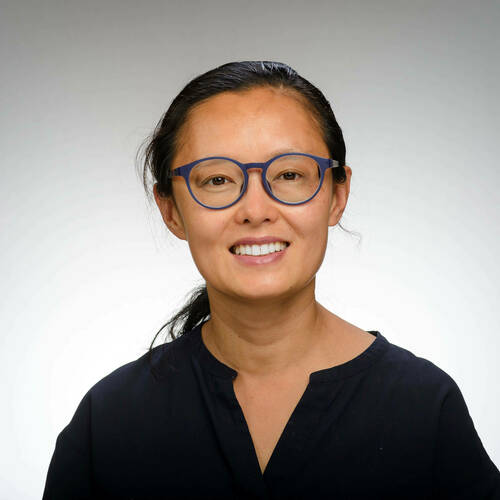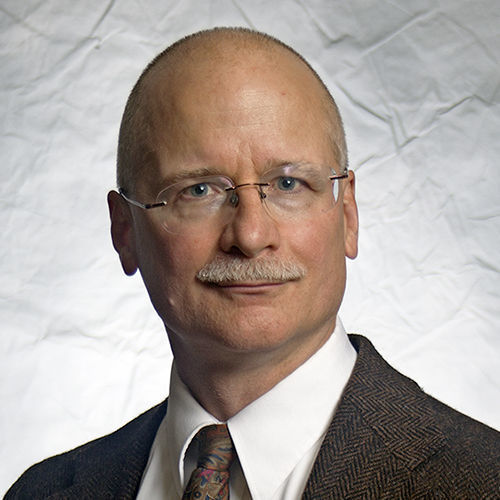World Religions World Church
The purpose of the concentration in World Religions and World Church (WRWC) is to explore new ways of thinking about the study of world religions, global Catholicism, and the history of interactions between the Church and the religions of the world. Concretely, this entails providing the intellectual foundations for engaging the student with religions of the world from within a Christian theological paradigm. These foundations both enable the study of the world's religions with specific attention to their own particular historical contexts and modes of theological discourse and provide the necessary preparation for informed inter-religious dialogue. The concentration also involves studying the ways in which Christianity has become inculturated in contexts shaped largely by non-Christian religious traditions. Since it adopts a theological paradigm for approaching both of these issues, a doctorate in WRWC requires substantive work in one of the other five major areas of doctoral concentration.
The program in World Religions and World Church includes two disciplines:
- World Religions
- World Church
These are frequently studied in isolation from one another. In WRWC they are studied together since the study of World Religions and of the World Church raise important and closely linked theological questions. A careful study of the Church in regions where Christianity is not the majority religion inevitably raises questions of how Christianity has been shaped both by interdenominational encounters and by encounters with non-Christian religions. On the other hand, an in-depth engagement with World Religions to lay the theological groundwork for interreligious dialogue cannot ignore the Church context in different parts of the world where this dialogue has in fact occurred and continues to occur. The WRWC program, then, is premised on the conviction that these questions are best studied in concert.
Particular strengths of the program at this time include theologies of the Global South, early Islam and the history of Quranic interpretation, Muslim-Christian relations, classical and contemporary Hinduism, Tibetan Buddhism, Christian missions, contemporary African Christianity, and theologies of inculturation.
Students who major in WRWC will take two methodologically focused courses. Their coursework and candidacy exams will focus on a particular religion or a particular region of the World Church, but will also study more broadly within the area. Since both the World Religions track and the World Church track are conceived within a theological paradigm, students will minor in one of the other area concentrations of the department. Interested students may also pursue options in a number of other units of the university that consider different ways that the study of world religions of the world Church intersect with other pressing scientific, ethical and political issues in a globalized world, including the Kroc Institute for International Peace Studies, the Kellog Institute for International Studies, the Center for Ethics and Culture, and Latin American/North American Church Concerns.
Apply Now
Visit the Graduate School's website to fill out the online application. Required components of the application include three letters of recommendation, a statement of intent, a CV or resume, unofficial transcripts, GRE scores, and an English proficiency examination (if applicable). The application deadline to the Ph.D. Program is January 2.
Faculty
-

Emmanuel Katongole
Professor
World Religions and World Church | Politics and Violence in Sub-Saharan Africa; Political Theology; Global Catholicism; Theology and Peace Studies, Reconciliation | Emmanuel Katongole is Professor of Theology and Peace Studies. He holds a joint appointment with the Keough School of Global Affairs, where he serves as a full time faculty of the Kroc Institute for International Peace Studies. Before joining the University of Notre Dame (Jan 2013), he served as Associate Professor of Theology and World Christianity at Duke University, and as founding co-director of the Duke Center for Reconciliation. A member of the Contending Modernities Initiative team, Katongole coordinates an inter-disciplinary research project, which investigates how religious and secular forces compete or collaborate in shaping new modes of authority, community and identity within the context of nation-state modalities in Africa. He is a Catholic priest of Kampala Archdiocese, Uganda where he was ordained in 1987.
-

Paul Kollman, CSC
Associate Professor
World Religions and World Church, History of Christianity |I am currently preparing a manuscript on the Catholic missionary evangelization of eastern Africa. |Paul Kollman, CSC, is associate professor of theology and has been on the faculty at Notre Dame in the Department of Theology since 2001. Before that he taught at the Queen of Apostles Philosophy Seminary in Jinja, Uganda, and Catholic Theological Union in Chicago. Since being at Notre Dame he has also taught at Tangaza College, Nairobi, Kenya. His scholarship focuses on African Christianity, mission history, and world Christianity, and he has taught and carried out research in Africa and in archives around the world. Kollman earned his PhD from the University of Chicago Divinity School (2001), and a BA and MDiv from Notre Dame (1984, 1990). He is the author of The Evangelization of Slaves and Catholic Origins in Eastern Africa, co-author of Understanding World Christianity: Eastern Africa, and numerous other publications in professional journals. He has served as executive director of Notre Dame’s Center for Social Concerns, as president of the American Society of Missiology, and is currently president of the International Association of Mission Studies. Kollman is also a fellow of the Kellogg, Kroc, and Nanovic Institutes at Notre Dame. A native of Cincinnati, Ohio, Kollman currently lives in O’Neill Hall at Notre Dame.
-

David Lantigua
Associate Professor
Moral Theology/Christian Ethics, World Religions and World Church |Modern Catholic social tradition; Spanish scholastic moral, legal, and political thought; human rights and social movements; Latin American theology and Indigenous cultures; (neo)colonialism and history of international law; comparative religious ethics |Born of Latino immigrants, Prof. Lantigua graduated with a Ph.D. in Theology from the University of Notre Dame. He taught previously at The Catholic University of America, and has been a graduate fellow of the Notre Dame Institute for Advanced Study and past recipient of the Louisville Institute Sabbatical Research Grant. He previously served as Co-Director of the Catholic Social Tradition minor in the Center for Social Concerns. He is currently the William W. and Anna Jean Cushwa Co-Director of the Cushwa Center for the Study of American Catholicism.Prof. Lantigua teaches undergraduate courses on God and Slavery in the Americas and Catholic Social Teaching. He has served on exam and dissertation committees for graduate students in the areas of Moral Theology, History of Christianity, World Religions and World Church, and the Departments of Political Science and History. Prof. Lantigua is currently writing a monograph on the Latin American theological and cultural dimensions of Pope Francis’s social teachings and its implications for global Catholicism in the twenty-first century.Aside from spending time in the Florida sunshine with family, he enjoys playing fútbol with his children and cheering for the US and Paraguayan (and Argentine) national teams.
-

Bradley Malkovsky
Associate Professor
World Religions and World Church, Systematic Theology | Christianity and Other Religions: Comparative Spirituality, Comparative Eschatology, Comparative Doctrines of the Divine. | Malkovsky's area of interest is the doctrinal and spiritual relation of Christianity to Other Religions. His area of specialization is the Hindu-Christian Encounter. He was the editor of the Journal of Hindu-Christian Studies from 2002-17.
-

Paulinus I. Odozor, C.S.Sp.
Professor
Moral Theology/Christian Ethics, World Religions and World Church | Working on projects relating to sex and sexuality in an ecumenical age; working on projects about virtues in Africa, etc | Paulinus Ikechukwu Odozor, C.S.Sp., is a priest of the Congregation of the Holy Spirit (Spiritans). He received his initial formation in Nigeria and did his graduate studies at St Michaels College, Toronto, Regis College, Toronto, and the University of Toronto. Odozor's scholarly interests are in Foundational issues in Christian ethics; history of Catholic moral theology; contextual theological issues, including questions pertaining to inculturation; theology and society; African Christian theology; and the theology of marriage. Fr, Odozor is also an Africanist with interest in African history, African literature, African politics and questions relating to change and contemporary African societies. In addition to being the author of many articles in peer-reviewed publications in Africa, Asia, Europe, and North America, Fr Odozor has also authored or edited nine books. Fr. Odozor held numerous academic, administrative, and pastoral positions in Nigeria and Canada. He was president of the Governing Council of Spiritan International School of Theology in Enugu, Nigeria(2005-2017) and was appointed by Pope Benedict XVI as expert assistant to the 2009 Synod of Bishops for Africa.
-

R. Trent Pomplun
Associate Professor
World Religions and World Church |Mission History, Tibetan Studies, Buddhist Studies, Late Medieval and Early Modern Scholasticism, History of Religions |Prof. Pomplun’s expertise extends from late medieval to modern thought, with special emphasis on the seventeenth and eighteenth centuries. He has published on the history of scholastic theology, Catholic missions in Asia, and Indo-Tibetan religion and culture. He is chiefly absorbed in the study of Ippolito Desideri, a Jesuit who lived in Tibet during the early eighteenth century. When not squinting at Tibetan manuscripts, he studies both eastern and western traditions of scholasticism.
-

Gabriel Reynolds
Jerome J. Crowley and Rosaleen G. Crowley Professor of Theology
World Religions and World Church, History of Christianity |Qur'anic Studies and Muslim-Christian Relations |Gabriel Said Reynolds did his doctoral work at Yale University in Islamic Studies. Currently he researches the Qur'ān and Muslim/Christian relations and is Professor of Islamic Studies and Theology in the Department of Theology at Notre Dame. He is the author of The Qur'ān and Its Biblical Subtext (Routledge 2010) and The Emergence of Islam (Fortress, 2012), the translator of ʿAbd al-Jabbar’s Critique of Christian Origins (BYU 2008), and editor of The Qur'ān in Its Historical Context (Routledge 2008) and New Perspectives on the Qur'ān: The Qur'ān in Its Historical Context 2 (Routledge 2011). In 2012-13 Prof. Reynolds directed, along with Mehdi Azaiez, “The Qurʾān Seminar,” a year-long collaborative project dedicated to encouraging dialogue among scholars of the Qurʾān, the acts of which appeared as The Qurʾān Seminar Commentary (De Gruyter, 2016). In 2018 he published The Qurʾan and the Bible with Yale University Press and in 2020 Allah: God in the Qur'an, also with YUP. At Notre Dame he teaches courses on theology, Muslim/Christian Relations, and Islamic Origins. He runs a youtube channel, “Exploring the Qur’an and the Bible” that features conversations on scripture with leading scholars.
-

Mun'im Sirry
Associate Professor
World Religions and World Church | Qur'anic studies, interreligious relations | Mun’im Sirry is assistant professor of theology with additional responsibilities for the Contending Modernities research project. He earned his Ph.D. from the University of Chicago Divinity School (2012). He did his undergrad and graduate studies at the International Islamic University in Islamabad, Pakistan, and Master’s degree from the University of California, Los Angeles (UCLA). His academic interest includes Qur’anic studies, interreligious relations, political theology, modern Islamic thought, and Southeast Asian religions and cultures. Along with Professor Gabriel Said Reynolds, he is the editor of journal Islam and Christian-Muslim Relations. Sirry is the author of Scriptural Polemics: The Qur’an and Other Religions (Oxford, 2014). He is now finishing up his monograph dealing with both traditional and critical scholarship on Islamic origins. He is also coordinating the Contending Modernities working group on Indonesia exploring and analyzing the complex relationships between various contending forces that have shaped, and been shaped by, religious life at both the societal and state levels. Sirry’s publications have appeared in journals such as Arabica, al-Bayan, Bulletin of the School of Oriental and African Studies, Interpretation, Islam and Christian-Muslim Relations, Journal of Semitic Studies, Journal of Southeast Asian Studies, The Muslim World, Studia Islamica, Die Welt des Islams.
-

Xueying Wang
Assistant Professor
World Religions and World Church | Catholicism in China, Confucianism, Mission History | Xueying Wang’s research focuses on Catholicism in China, especially the Chinese Rites Controversy (ca. 1630–1742). She pays special attention to the writings of Chinese Catholics, whose voices have traditionally been neglected. She has published articles on the work of Chinese Catholic intellectuals including Yan Mo, Zhang Xingyao and Xia Dachang who offer divergent perspectives on how their Confucian heritage can be harmonized with their newfound Catholic faith. Through careful examination of their writings, Prof. Wang explores theological topics such as ancestral sacrifices, sacrifices made in Confucian temples, and the translation of Catholic concepts into Chinese. She is currently writing a monograph tentatively titled: Chinese Literati on the Rites Controversy: A Comparative Theological Perspective.
-

Todd Whitmore
Associate Professor
Moral Theology/Christian Ethics, World Religions and World Church | Theology and Ethnography; Social theory; the Opioid Crisis | Professor Whitmore uses ethnographic methods to raise theological questions. From 2005-2013, this took him to war and post-conflict zones in northern Uganda and South Sudan, leading to his book, Imitating Christ in Magwi: An Anthropological Theology (Bloomsbury/T&T Clark, December 2018). Anthropological theology turns traditional “theological anthropology” on its head, with the conviction that any account of “the person” must be richly informed by accounts of how persons in fact live. His work has led to him being appointed as Concurrent Associate Professor in the Anthropology Department. Currently Professor Whitmore’s work is local, where he serves as a Certified Addiction Peer Recovery Coach for persons with methamphetamine and opioid addictions in northern Indiana. His research asks how Christianity, race, and class work in the construction of public ideas of who counts as an addict. In doing “grounded” theology, Professor Whitmore believes that theologians should serve the marginalized by more than writing books. In Uganda in 2008, he co-founded, based on Catholic social teaching, a non-profit that combined agricultural training and peacebuilding. In 2018 he wrote a successful grant to train addiction recovery coaches to work in the local hospital emergency room to help those recovering from overdoses to maintain ongoing sobriety.
